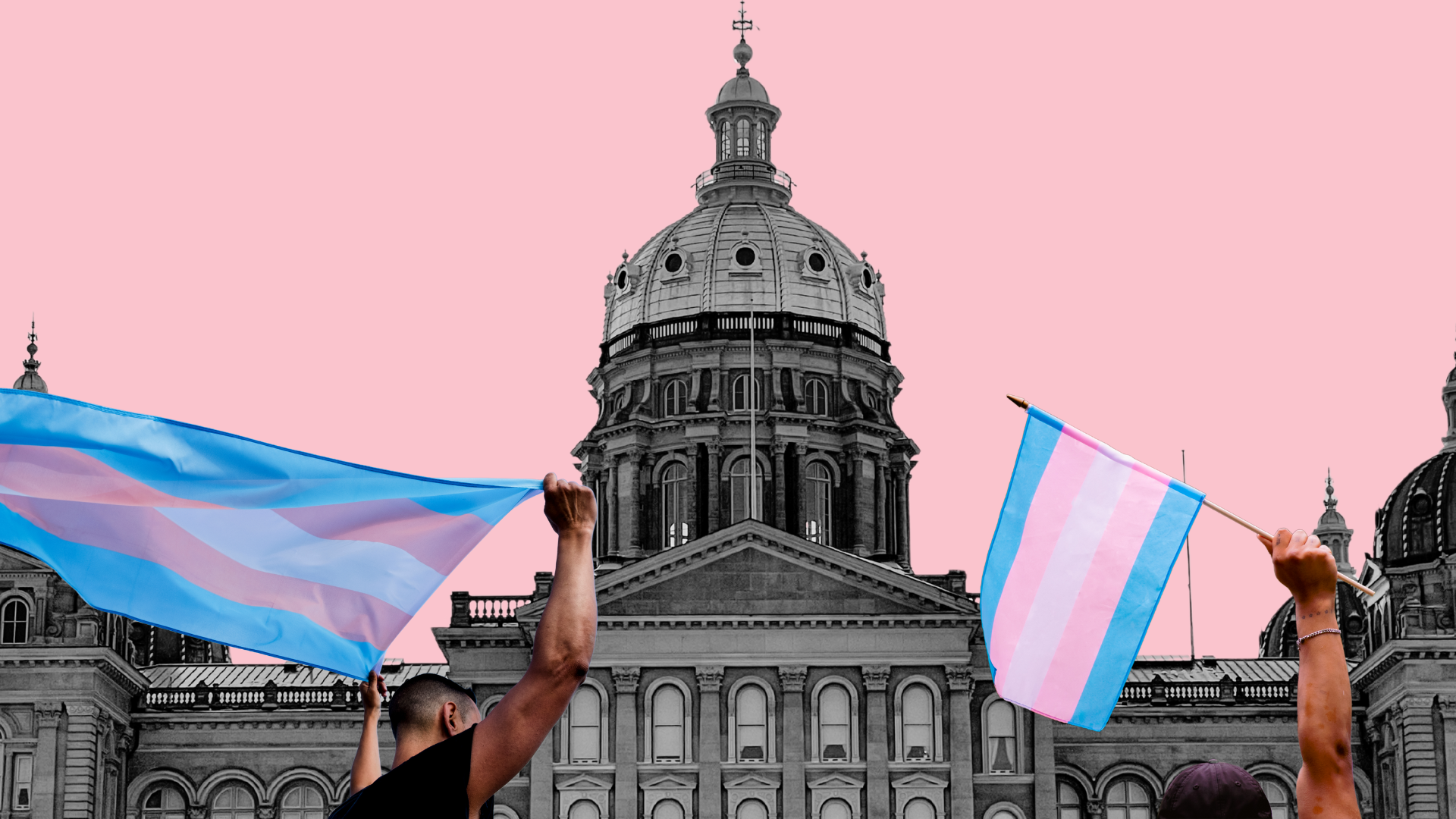Iowa, a state known to outsiders for its beauty and contributions to agriculture. To its natives, it has long been known for its progressive social policies. So, when Iowa became the first U.S. state to remove gender identity protections from its civil rights code, the irony has not been lost on many who call Iowa home. .
Senate File 418, now a law in the state, means that trans individuals are required to identify with the original sex they were born as on any form of ID, prohibiting trans athletes from participating in sports that align with their gender identity. This law also allows businesses, hospitals and schools a right to refuse any form of service due to gender identity.
In a video explaining why she signed the bill, Governor Kim Reynolds says “it’s common sense to acknowledge the obvious biological differences between men and women. In fact, it’s necessary to secure genuine equal protection for women and girls.” She notes that the previous civil rights code “blurred the biological line between the sexes.”
The fight for trans rights has been an ongoing battle for the past 50 years, with one of the most memorable acts occurring in the early 1960s. Marsha P. Johnson, an American gay libertarian and one of the most recognized trans women in history, was known for her acts during the Stonewall Riots. Johnson helped pave the way for the trans community and has helped millions who struggle with their own gender identity. Johnson’s story is an example of how important gender identity is.
Daniel Madinger, a West High senior, transitioned in the early years of their adolescence. “I’m not sure when or why I started feeling different but I know I was super young,” Madinger says. “I went through puberty at a very young age so that definitely elevated my discomfort with myself. In the fourth grade I initially came out to some close friends and some classmates.”
Madinger’s transition has been far from easy. “My middle school years were the worst. I had made my group of friends but besides that I felt so isolated from people. There were many people at my school who were openly homophobic and transphobic,” Madinger reflects. “There’s some things that have been said and done to me that I just don’t like to talk about. From 6th to 8th grade, I continued dressing like a boy and tried to pass. When I started high school I honestly started to feel scared when it came to my identity.”
Madinger has begun to grow into their gender identity, coming out as non-binary. Non-binary can be explained as neither associating with male or female gender stereotypes or being somewhere in between. It is an identity that falls outside of the traditional binaries of male and female. “Now at 18 I just identify as non-binary, but I’m still comfortable with he or they pronouns. I felt like it was harder to come out as non-binary because there’s more of a stigma against them. Non-binary people don’t fit the type of norm cisgender people are comfortable with. I’ve noticed for some reason people really have a hard time using they/them pronouns,” they say.
“We have been fighting for a very long time and I don’t see the trans community giving up. People think that trans people just sort of popped up when the internet did, but they are dead wrong. It’s sad we aren’t taught in school about the LGBTQ+ community and what they have fought for,” Madinger added.
Iowa Governor Kim Reynolds has opened the door for for transphobic and homophobic comments to be made without consequences, leaving many fearful for themselves or those that they care about.
In 2023 alone, over 220 transgender rights bills were banned, including 125 gender affirming care acts, 30 anti-transgender bathroom bills, more than 100 anti-LGBTQ+ curriculum censorship bills and 45 anti-LGBTQ+ drag performance bills in the United States. In 2025, the Trans Legislation Tracker says 809 anti-transgender bills have been put in place in over 49 states including Ohio, New Hampshire, Wyoming and South Carolina, and more. Yet Iowa is the first in the United States to remove nondiscrimination protections based on gender identity from their civil rights code.
Senior Percy Batista-Pedro says, “Transitioning was like waking up.” Batista-Pedro’s states his memories from before he transitioned are fuzzy, like someone else was piloting his body.
“These laws are pushing me out of the country. As a kid, I never even considered moving internationally. In fact, I wanted to go into law here and advocate for LGBTQ+ Americans. But that dream has died as I have lost hope for this country.” Batista-Pedro states, “Now, I am moving to Portugal in the fall to escape this discrimination. I have lost a life here, and I’m sure many other LGBTQ+ people are planning to immigrate as well. America will lose valuable, confident, bright citizens and will be further ostracized from other countries. ”
“Check in with your transgender friends. Let them know that you are there for them and that they are not alone in their fight. Join rallies and protests to make your voice heard. Email or call our representatives to inform them of the opinions of their citizens,” Batista-Pedro continues. “Follow organizations like Iowa Safe Space, the ACLU, the Iowa Queer Student Alliance, GLSEN, etc. to stay informed and show your support online. Your voice is your best method of support for LGBTQ+ Iowans.”
Trans youth thrives under gender affirming care and recognition. To keep up with the current bills in the House and to help support the LGBTQ+ youth in Iowa support the Trevor Project.









